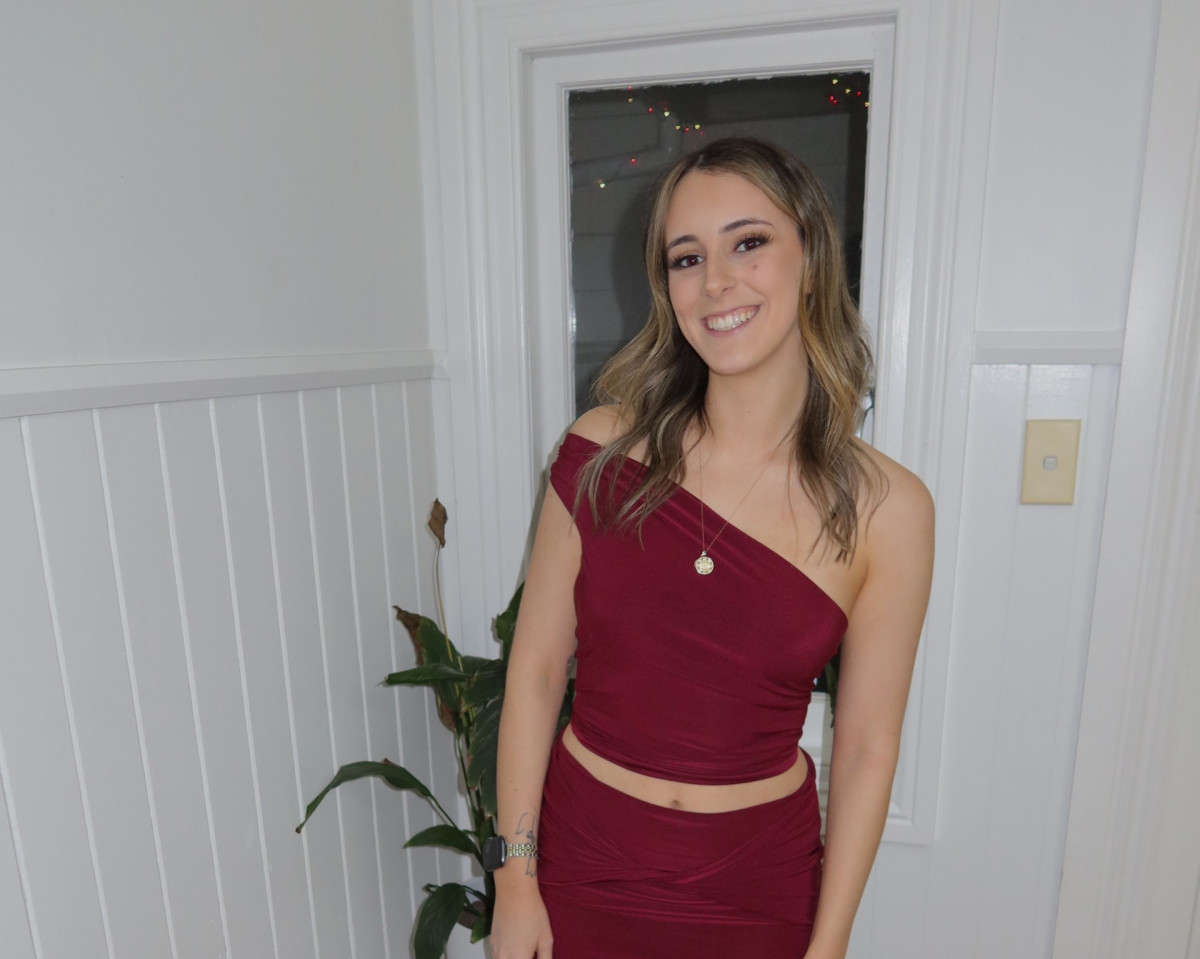Over the past decade dating apps have completely changed the game. While a stigma remains when it comes to meeting online, some people are doubling down on technology by using Artificial Intelligence (AI) to boost their dating profile in hopes of finding their perfect ‘match’.
Amy, who’s using a fake name due to work sensitivities, first entered the online dating scene this year after being in a 10-year relationship.
The 25-year-old thought it’d be easy to meet people in real life (IRL), but says she quickly learnt it was no longer the case, and was shocked most people met their partners and dates online.
She says she was hesitant at first to turn to online dating but found the dating scene IRL “was just so terrible”, she had to go online to have a dating life and did so with the help of generative AI.
Generative AI, which includes services such as ChatGPT, uses artificial intelligence to make new content or enhance things such as photos, videos, music, audio and text.
For example you could write to a generative AI provider and say ‘write me an eye-catching dating bio’ or ‘write a flirty first message to a potential date’ and in a matter of seconds you would have a result.
“It was quite scary and daunting… So different things like writing my initial bio, helping me with my Hinge prompts, I’ve used it a couple of times to reply to people if I’m stuck in conversation, [it] has helped me a lot,” Amy says.
Using generative AI appears to be getting more popular to make someone’s online dating profile stand out.
New research from Samsung reveals that 63% of the 1,000 New Zealanders surveyed would consider using AI to write their dating app bio.
Of those surveyed, 60% also say they would decline a potential match based on their bio or first message, with cringe-worthy phrases, trying too hard to impress and spelling errors as the top reasons to ‘swipe left’.
How generative AI helped land dates
Amy says people can probably relate to “staring at the dating app” and feeling stuck about where to start or what to write.
“You know who you are as a person but trying to understand what’s a common prompt to use or [what] to include in your bio to get the most matches, it’s fascinating.”
Amy says AI has helped her ask a guy she matched with on a date, something she didn’t have much experience with.
“He wasn’t asking to hang out but I wanted to ask him because I enjoyed the flow of the conversation.
“So I used AI to ask how I should ask this guy out in a way that wasn’t too forward and pushy but was quite casual and made it seem like it was his idea.
“It actually worked and we went out for ice cream.”
Using AI in dating apps doesn’t just stop there, it’s also being used to edit photos.
Jorja Parmentier has nothing against using a bit of AI, but says it’s disappointing to see people using it to enhance their bodies because there’s “nothing worse than being catfished”.
Earlier this year, the 22-year-old says she went on a date with a guy who claimed to be taller and made himself look that way in his photos.
“Nothing wrong with a short king, I just don’t think you should lie about it. There’s nothing worse than [being so] excited to meet this person and then they’re nothing like what you’re expecting.”
But she says he had a great personality and they went on a couple more dates.
“That’s why people shouldn’t think they have to change themselves. If they have other great attributes, there’s no need to lie because that lying ends up bringing you down worse.
“I’m worried that potentially [using AI] is getting slightly overdone. The amount of profiles I see where people are just using Snapchat filters instead of their actual face, it's like I don't actually know what you really look like.”

Jorja Parmentier has nothing against using a bit of AI, but says it’s disappointing to see people using it to enhance their bodies. (Photo: Supplied)
Wanting to get back on dating app Hinge after her breakup, Jorja wanted to post a mirror selfie of her in a bikini, but realised her ex-boyfriend’s sports jersey number was still on her phone case so used an AI editing tool to remove it.
“If I ever see him on this app, or I see one of his friends, they’re going to be like, ‘oh my gosh Jorja still has his number on the back of her phone case but she’s posting these sort of photos’.
“I would not want him to think I was taking those sorts of photos when we were together.”
She says she used a free AI photo editing app to edit it but how these apps could collect data on her face or body worries her.
“Something we always forget is that when you’re downloading these sorts of apps, you’re clicking accept terms and conditions so quickly without actually reading… you actually don’t know what they’re going to do with it.”
Staying cautious when using AI photo editing apps for thirst traps or nudes
There are legitimate concerns to be had especially when a free app is being used, says Angelique Nairn, who is Auckland University of Technology’s associate head of school research for the School of Communication Studies.
She says it depends on which apps are being used as their privacy policies vary, but free accounts will often store a photo in its cloud-based processing system.
“When you upload a photo it goes to a remote server where the AI will then process it, the edited image is then sent back to your device. This is very common for a number of AI generative apps.”

Angelique Nairn is the Auckland University of Technology associate head of school research for the School of Communication Studies. (Photo: Supplied)
She says AI technologies use uploaded data to train their AI models, which can mean analysing and storing people’s photos in the cloud server.
It won’t necessarily mean that someone else will get the exact photo, she says, but it exists within these servers and is being used to construct an understanding of thirst traps or nudes.
Angelique also raises external risks such as images being shared without people’s consent and security vulnerabilities like data breaches, because they don’t invest in adequate security measures.
She also says it’s not always clear what these companies will be using this information for.
“Some of the terms and conditions, some of the privacy explanations on these apps are not definitive. They are quite vague, and that’s possibly because we don’t know what we don’t know about AI.
“So accumulating this information now means it could be repurposed later on, so they don’t want to cut themselves off at this point if there are opportunities later on.”
Angelique says with the proliferation of misinformation and deep fakes due to generative AI, taking a cautious and informed approach, particularly with sensitive images, will mean having the benefits of AI photo editing while also reducing the risks.
She says people should read the privacy policies and be well-versed on the current terms as they change all the time.
She also recommends using well-established apps from reputable developers with positive reviews and transparent data practices.
“It’s not flawless, but for example, OpenAI that oversees ChatGPT and Dall-E, do make it very clear that if you have free accounts, that if you put stuff up, it will go towards training data.
“I would also recommend using on-device editing tools you’ve downloaded and [they] sit on your computer and have specific logins you’ve paid for.”
More stories:
Why AI facial recognition has a discrimination problem
“It’s only as clever as the engineers and the people who put data into it.”
Lube-shaming is a thing, but it doesn’t have to be
Why are some people being talked out of using lube during sex?
“Colourism has followed me all my life”: Why I photograph migrants
Photographer Abhi Chinniah is running towards melanin, not away from it.